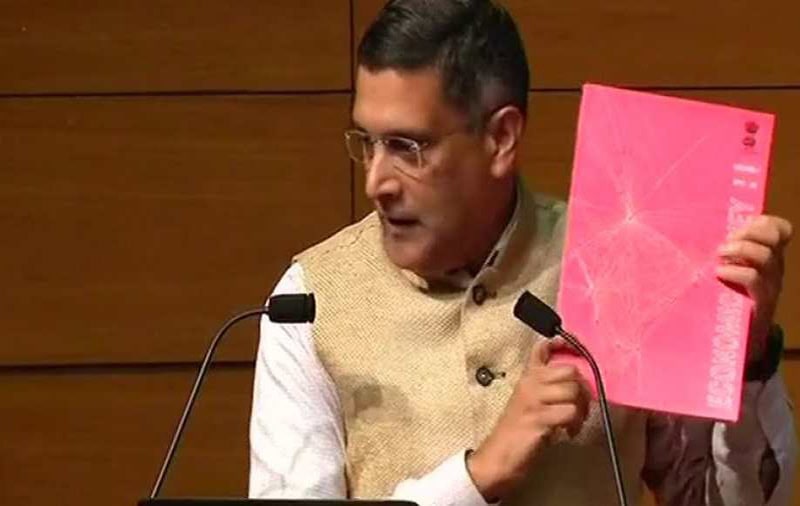NEW DELHI: Former Chief Economic Adviser Arvind Subramanian described demonetisation as a “massive, draconian, monetary shock” that accelerated economic slide to 6.8 per cent in the seven quarters after the decision against the 8 per cent recorded prior to it.
Subramanian, who quit the post earlier this year after a four-year tenure, has devoted a chapter in the upcoming book “Of Counsel: The Challenges of the Modi-Jaitley Economy”, published by Penguin, has kept to himself on whether he was consulted over demonetisation.
Demonetisation was a massive, draconian, monetary shock: In one fell swoop, 86 per cent of the currency in circulation was withdrawn. The real GDP growth was affected by the demonetisation. Growth had been slowing even before, but after demonetisation, the slide accelerated,” IANS quoted Subramanian as writing in the book.
“In the six quarters before demonetisation, growth averaged 8 per cent and in the seven quarters after, it averaged about 6.8 per cent (with a four-quarter window, the relevant numbers are 8.1 per cent before and 6.2 per cent after),” IANS quoted Subramanian as saying in the chapter “The Two Puzzles of Demonetisation — Political and Economic”.
Subramanian goes on to say, …But when a shock like demonetisation occurs, that primarily affects the informal sector, relying on formal indicators to measure overall activity will overstate GDP. This hypothesis goes only a small way towards explaining the puzzle since any squeeze in informal sector incomes would depress demand in the formal sector, and this effect should have been sizable.”
The Congress on Thursday launched a scathing attack on the Modi-led-NDA government after Subramanian blasted the note ban in his upcoming book. Besides the Congress, CPI-M and Trinamool Congress leaders also slammed the Modi government at the Centre over the note ban.
The Congress said on Twitter that former CEA “finally reveals his true feelings about the destruction by demonetisation. Obviously criticizing a decision by the supreme leader while in government would have been completely outside the realm of possibility.”
[also_read url=”https://archive.siasat.com/news/agriculture-ministry-admits-demonetisation-hit-farmers-badly-1436062/”]Agriculture ministry admits demonetisation hit farmers badly[/also_read]
Congress leader and former Union Minister Manish Tewari said there was a whole amount of “opacity” over Prime Minister Narendra Modi’s demonetisation of November 8, 2016 and said that Subramanian owes “responsibility” to the nation to tell “how it happened”.
He said the real story of how the ban on Rs 1,000 and Rs 500 currency came about had still not fully come out.
“Since Subramaniam was the CEA then, he owes a responsibility to the country to (say) what exactly happened? When did the RBI (Reserve Bank of India) meeting take place, was it cleared by the Cabinet or the Cabinet cleared it post-facto?” Tewari said.
“How did the whole process of demonetisation play out, was there any inter-ministerial consultation, was there any substantiated deliberation on the implementation?
“There is a whole amount of opacity around the whole issue,” Tewari said. “Subramaniam, who remained in service, should actually tell the country how exactly it came about.”
The Congress and opposition parties have been critical of demonetisation saying that it not only failed to unearth black money but destroyed economy by pulling down the GDP and caused immense damage to informal sector, small and medium enterprises besides the common man.

